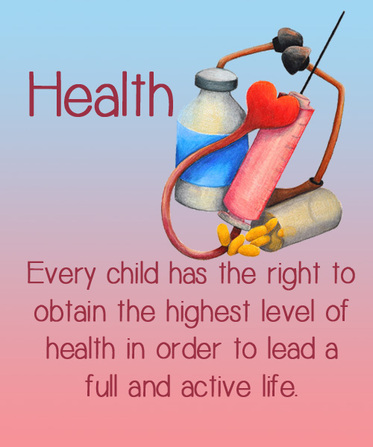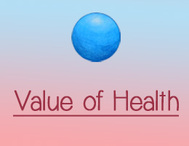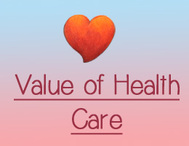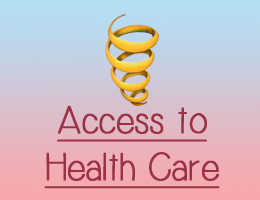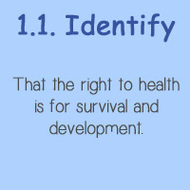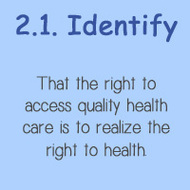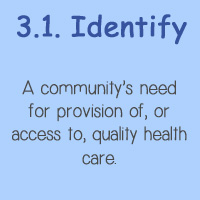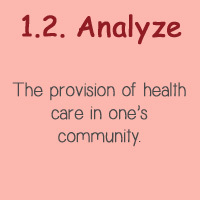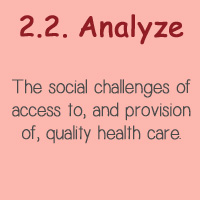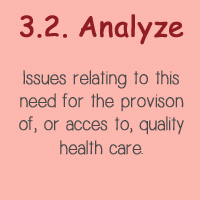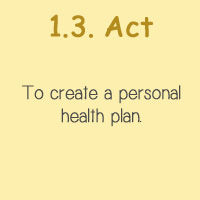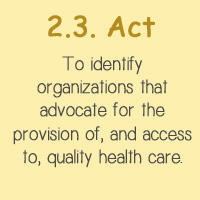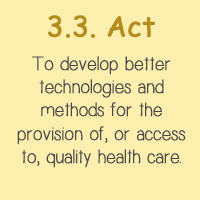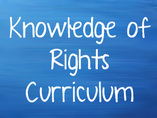Nutrition Research Health Care Technology
Health Sub-Unit Focus
Convention Articles that Relate to this Right:
Article 6
1. States Parties recognize that every child has the inherent right to life.
2. States Parties shall ensure to the maximum extent possible the survival and development of the child.
Article 24
1. States Parties recognize the right of the child to the enjoyment of the highest attainable standard of health and to facilities for the treatment of illness and rehabilitation of health. States Parties shall strive to ensure that no child is deprived of his or her right of access to such health care services.
2. States Parties shall pursue full implementation of this right and, in particular, shall take appropriate measures:
(a) To diminish infant and child mortality;
(b) To ensure the provision of necessary medical assistance and health care to all children with emphasis on the development of primary health care;
(c) To combat disease and malnutrition, including within the framework of primary health care, through, inter alia, the application of readily available technology and through the provision of adequate nutritious foods and clean drinking-water, taking into consideration the dangers and risks of environmental pollution;
(d) To ensure appropriate pre-natal and post-natal health care for mothers;
(e) To ensure that all segments of society, in particular parents and children, are informed, have access to education and are supported in the use of basic knowledge of child health and nutrition, the advantages of breastfeeding, hygiene and environmental sanitation and the prevention of accidents;
(f) To develop preventive health care, guidance for parents and family planning education and services.
3. States Parties shall take all effective and appropriate measures with a view to abolishing traditional practices prejudicial to the health of children.
4. States Parties undertake to promote and encourage international co-operation with a view to achieving progressively the full realization of the right recognized in the present article. In this regard, particular account shall be taken of the needs of developing countries.
Article 27
1. States Parties recognize the right of every child to a standard of living adequate for the child's physical, mental, spiritual, moral and social development.
2. The parent(s) or others responsible for the child have the primary responsibility to secure, within their abilities and financial capacities, the conditions of living necessary for the child's development.
3. States Parties, in accordance with national conditions and within their means, shall take appropriate measures to assist parents and others responsible for the child to implement this right and shall in case of need provide material assistance and support programmes, particularly with regard to nutrition, clothing and housing.
4. States Parties shall take all appropriate measures to secure the recovery of maintenance for the child from the parents or other persons having financial responsibility for the child, both within the State Party and from abroad. In particular, where the person having financial responsibility for the child lives in a State different from that of the child, States Parties shall promote the accession to international agreements or the conclusion of such agreements, as well as the making of other appropriate arrangements.
1. States Parties recognize that every child has the inherent right to life.
2. States Parties shall ensure to the maximum extent possible the survival and development of the child.
Article 24
1. States Parties recognize the right of the child to the enjoyment of the highest attainable standard of health and to facilities for the treatment of illness and rehabilitation of health. States Parties shall strive to ensure that no child is deprived of his or her right of access to such health care services.
2. States Parties shall pursue full implementation of this right and, in particular, shall take appropriate measures:
(a) To diminish infant and child mortality;
(b) To ensure the provision of necessary medical assistance and health care to all children with emphasis on the development of primary health care;
(c) To combat disease and malnutrition, including within the framework of primary health care, through, inter alia, the application of readily available technology and through the provision of adequate nutritious foods and clean drinking-water, taking into consideration the dangers and risks of environmental pollution;
(d) To ensure appropriate pre-natal and post-natal health care for mothers;
(e) To ensure that all segments of society, in particular parents and children, are informed, have access to education and are supported in the use of basic knowledge of child health and nutrition, the advantages of breastfeeding, hygiene and environmental sanitation and the prevention of accidents;
(f) To develop preventive health care, guidance for parents and family planning education and services.
3. States Parties shall take all effective and appropriate measures with a view to abolishing traditional practices prejudicial to the health of children.
4. States Parties undertake to promote and encourage international co-operation with a view to achieving progressively the full realization of the right recognized in the present article. In this regard, particular account shall be taken of the needs of developing countries.
Article 27
1. States Parties recognize the right of every child to a standard of living adequate for the child's physical, mental, spiritual, moral and social development.
2. The parent(s) or others responsible for the child have the primary responsibility to secure, within their abilities and financial capacities, the conditions of living necessary for the child's development.
3. States Parties, in accordance with national conditions and within their means, shall take appropriate measures to assist parents and others responsible for the child to implement this right and shall in case of need provide material assistance and support programmes, particularly with regard to nutrition, clothing and housing.
4. States Parties shall take all appropriate measures to secure the recovery of maintenance for the child from the parents or other persons having financial responsibility for the child, both within the State Party and from abroad. In particular, where the person having financial responsibility for the child lives in a State different from that of the child, States Parties shall promote the accession to international agreements or the conclusion of such agreements, as well as the making of other appropriate arrangements.
Unit Resources and References
Humanium Help the Children - The Right to Health: Understanding children's right to health
World Health Organization - Office of the United Nations High Commissioner of Human Rights - The Right to Health
World Health Organization - Office of the United Nations High Commissioner of Human Rights - The Right to Health

